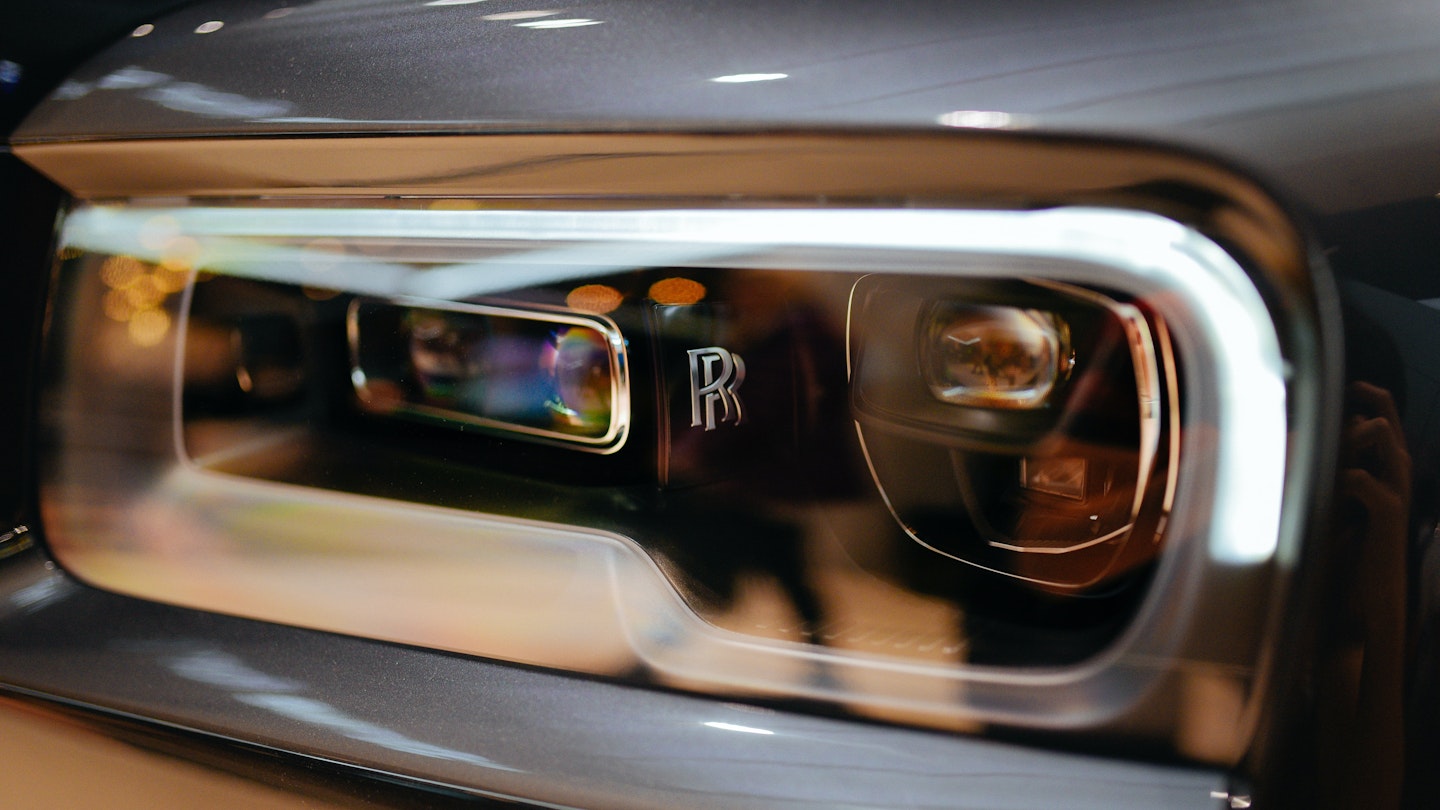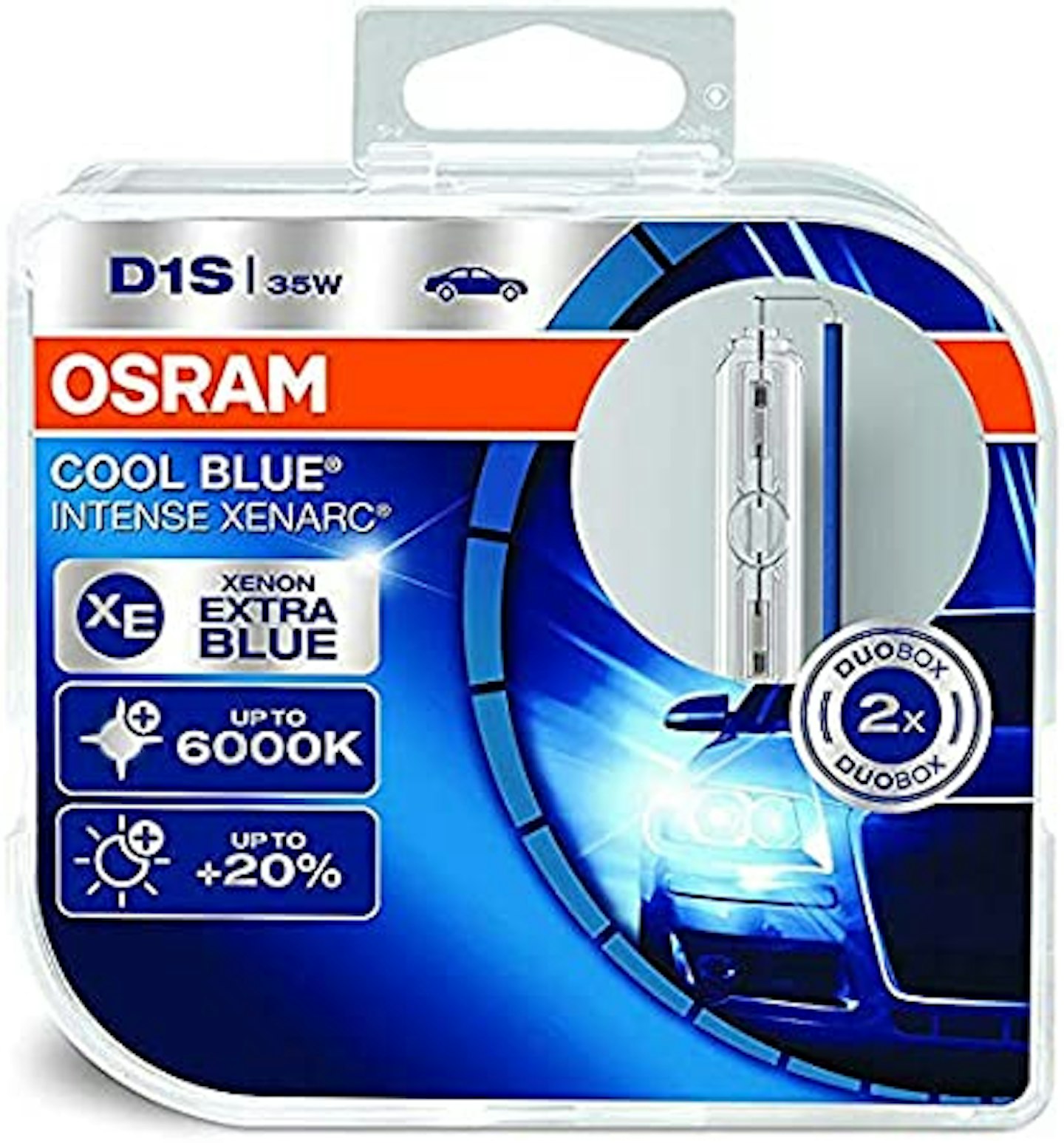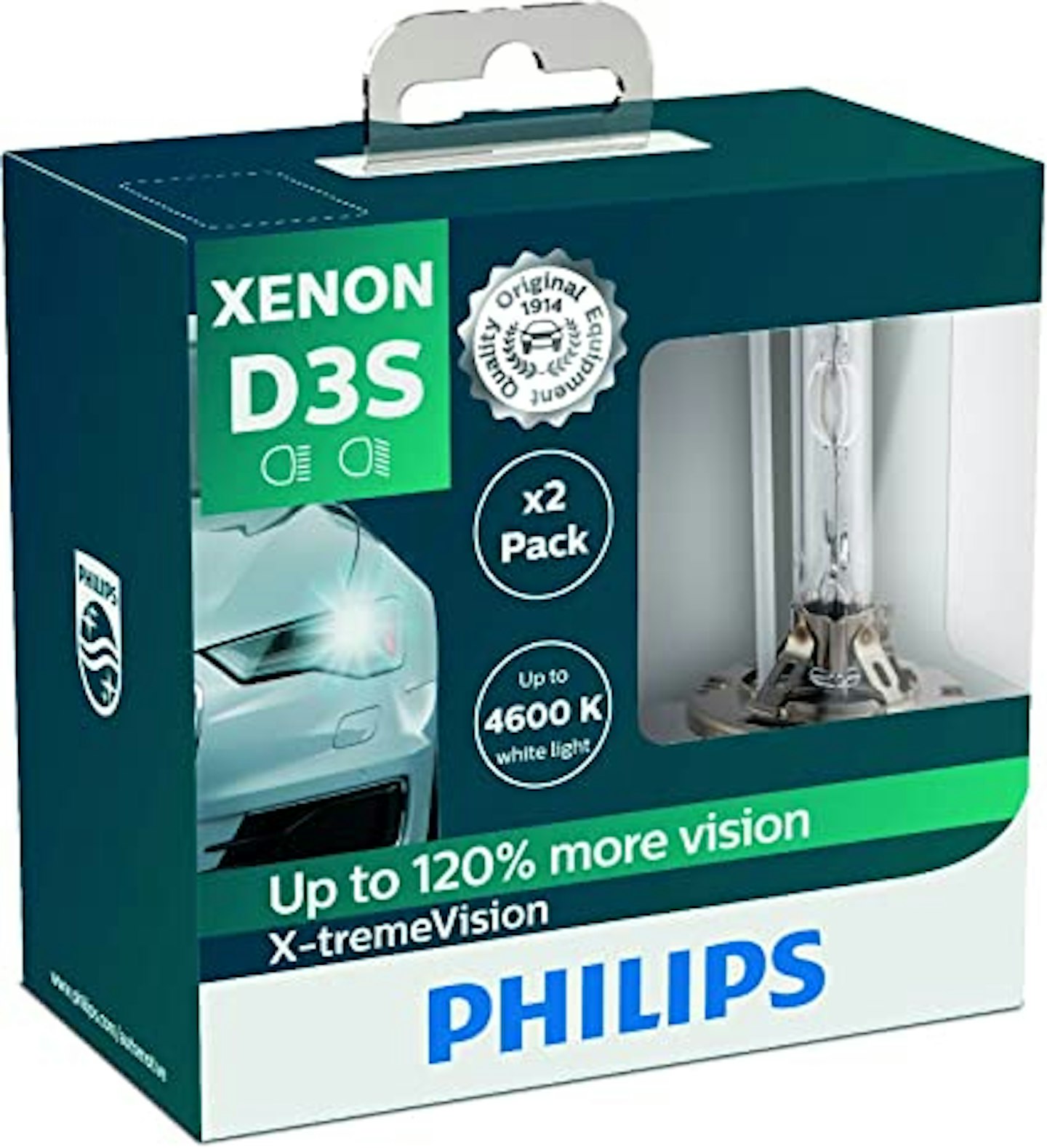As the world of automotive headlights (yes, it’s big business) evolves towards increasingly intelligent and adaptive lights, you could be forgiven for thinking the simple days of changing your car’s bulbs are gone. Not necessarily so. These days, most cars still use halogen bulbs, making bulb replacements possible (sometimes tricky, but possible).
Technology has moved on quite a bit since the halogen bulb replaced the tungsten bulb as the most popular lighting solution in cars. Today, we regard Xenon and LED as the top-rated sources of headlamp illumination, despite Xenon lamps first being used in BMWs as far back as the early 90s.
Best headlight bulbs at a glance
Editor's choice: Osram Night Breaker - Buy now from Amazon UK
Best for halogen white light: Philips WhiteVision ultra - Buy now from Amazon UK
Best for long life: Osram Xenarc Ultra Life D3S - Buy now from Amazon UK
Xenon (or HID), along with LED bulbs, are still mainly found in top-of-the-range models, but as the technology develops, these will surely become less expensive and will eventually start to replace halogen as the bulb of choice in the future. But that all takes time, and there are no signs of halogen bulbs disappearing quickly - let's face it, they still do the job simply and inexpensively. We will look at some Xenon bulbs shortly, but first, some of those tried and tested halogen bulbs.
Best headlight bulbs
 Via Amazon
Via AmazonMake sure you get the correct bulb for your vehicle
Pros
- Removes guesswork
- Easy to use
Cons
- Prime may be required for free delivery
Halogen bulbs
Editor's choice
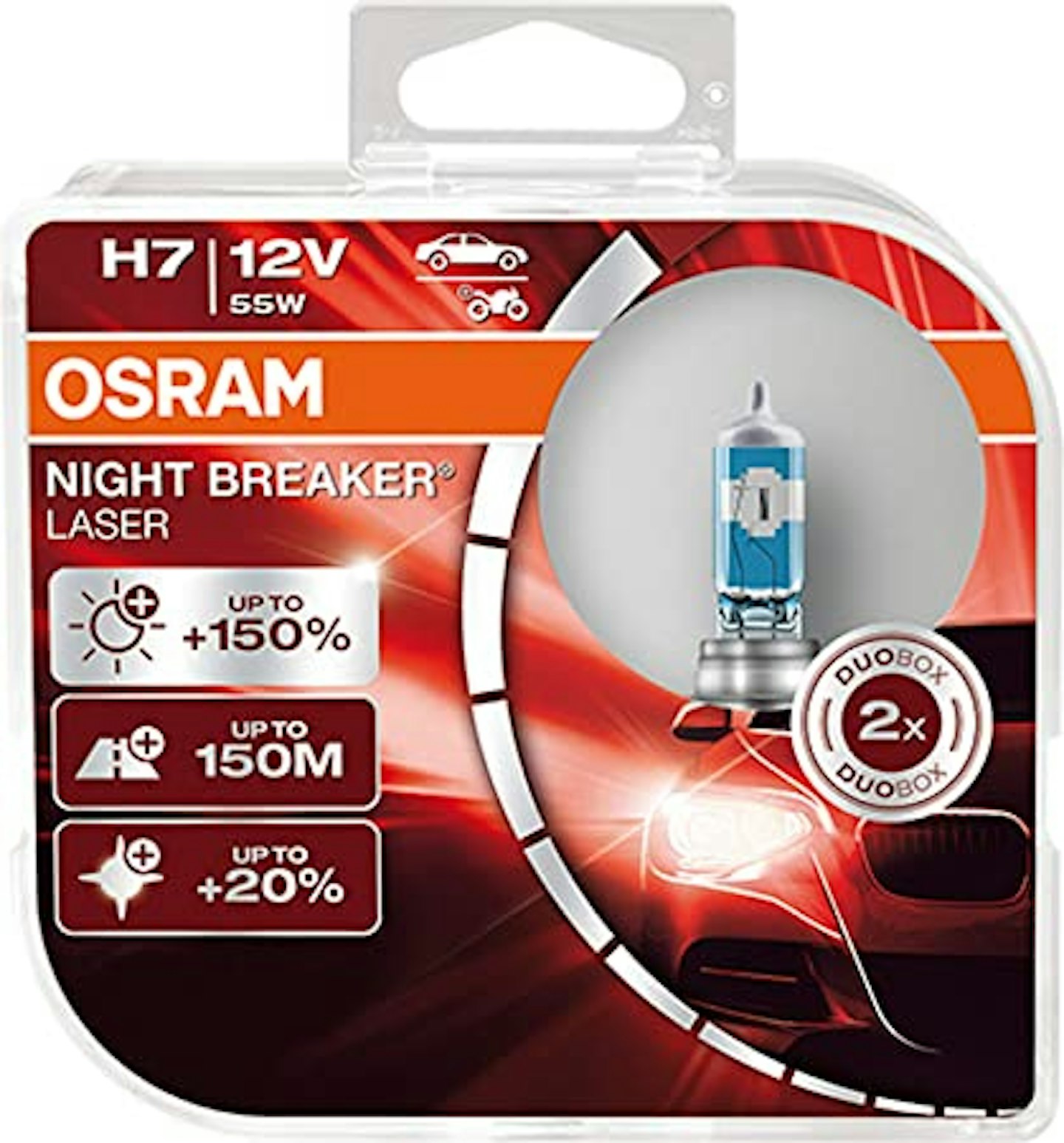
redirect.viglink.com
These high-intensity, bright halogen bulbs bring up to 150% more brightness to light the road with an innovative laser ablation technology. The highly engineered filament ensures an extra light boost, giving you 150 meters of light and up to 20% whiter light, giving your car a much more modern look.
Pros
- Up to 150% more brightness
- Up to 150 m long beam
- Up to 20% whiter light
Cons
- A low price doesn’t always mean high durability
Cool look
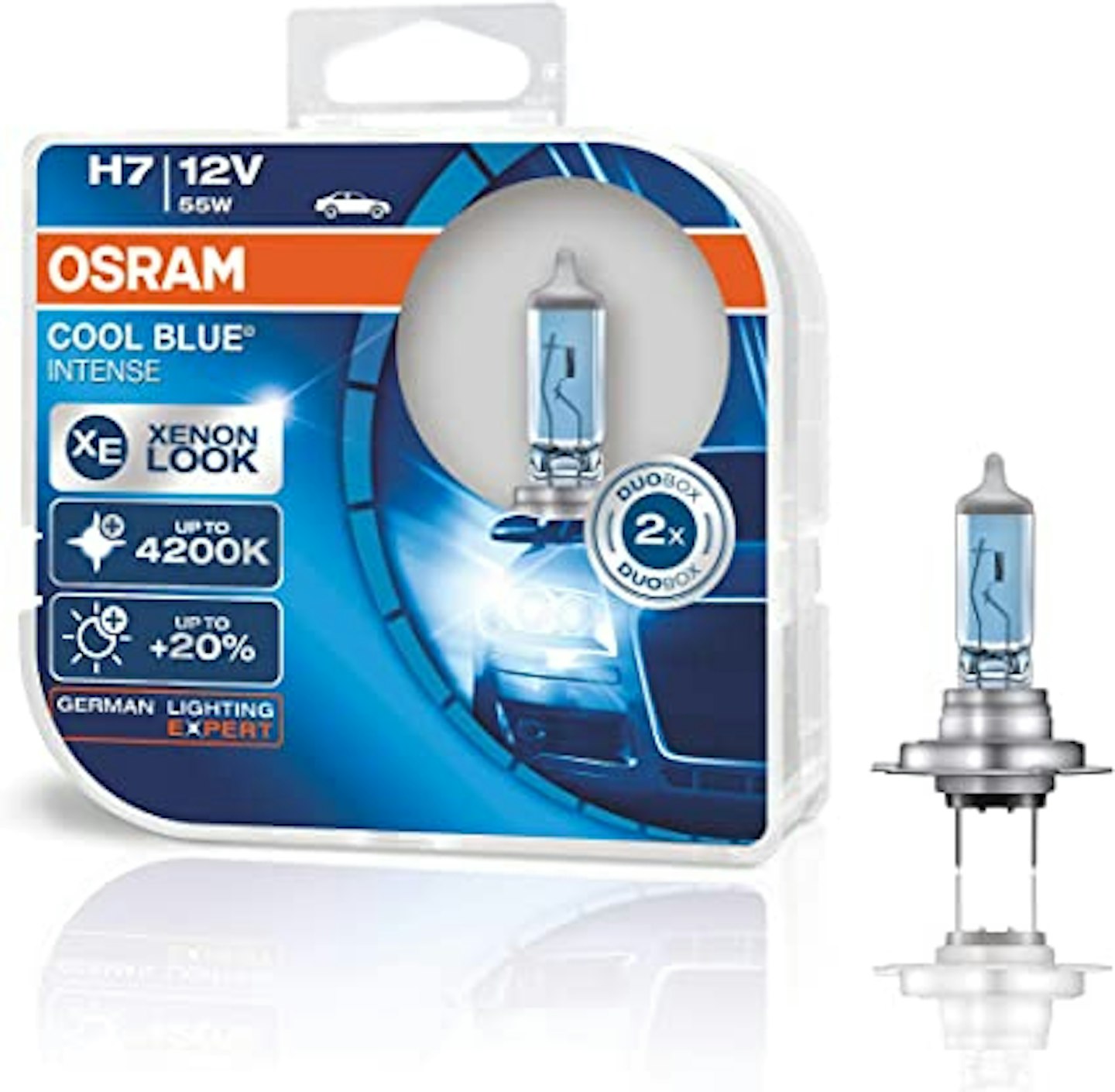
This high-performance headlamp delivers up to 20% more light than standard halogen lamps and gives a blue xenon-like tinge to those who desire them. These bulbs are said to be suitable for clear glass or plastic headlamps as they draw the same power as standard bulbs, meaning overheating shouldn’t be an issue.
Pros
- It draws the same power as standard bulbs
- Up to 20% more light compared to standard halogen lamps
- Unique xenon look
Cons
- Some people might not like the blue Xenon look
White light
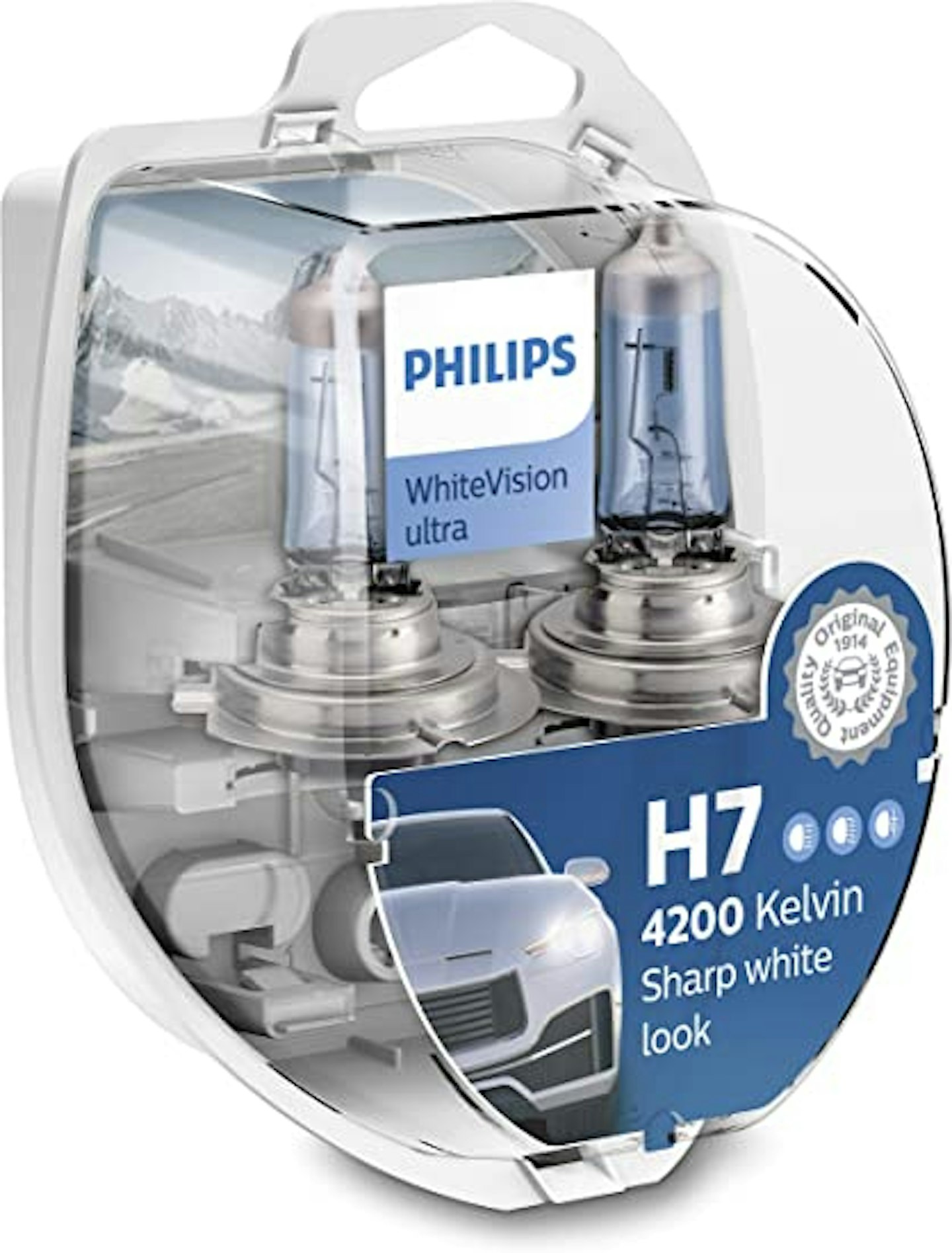
These Philips bulbs give a crisp, white light to help you see the road much more clearly and possibly further than your car's original headlights could.
Philip claims that these headlights give you up to 60% more vision on the road. Philips car bulb is compatible with car models of major brands, such as Audi, BMW, Ford, GM, Toyota and Volkswagen.
Pros
- Up to 60% more vision
- White stylish look
- Manufacturing processes that exceed current industry specifications
Cons
- It might not be as white as you’re looking for
Extra brightness
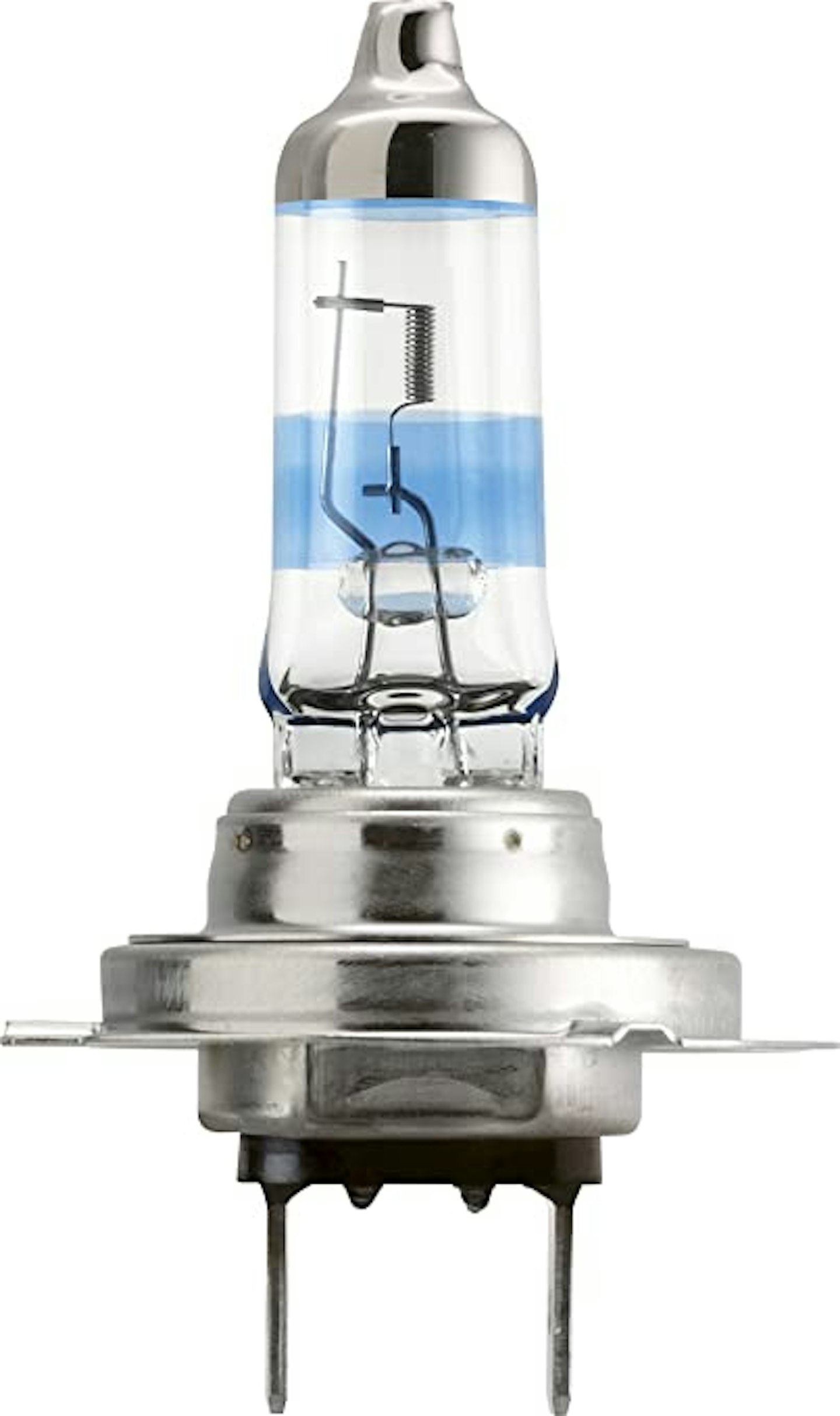
These from Philips, while more expensive, are meant to be some of the best aftermarket lights you can purchase. They will give you up to 150% more brightness, making it one of the brightest bulbs, but brighter does affect durability with only 200 hours of lifetime.
Pros
- Super bright
- Twin pack
- UV-Quartz glass
Cons
- High price
- The lifetime is only 200 hours
Long life
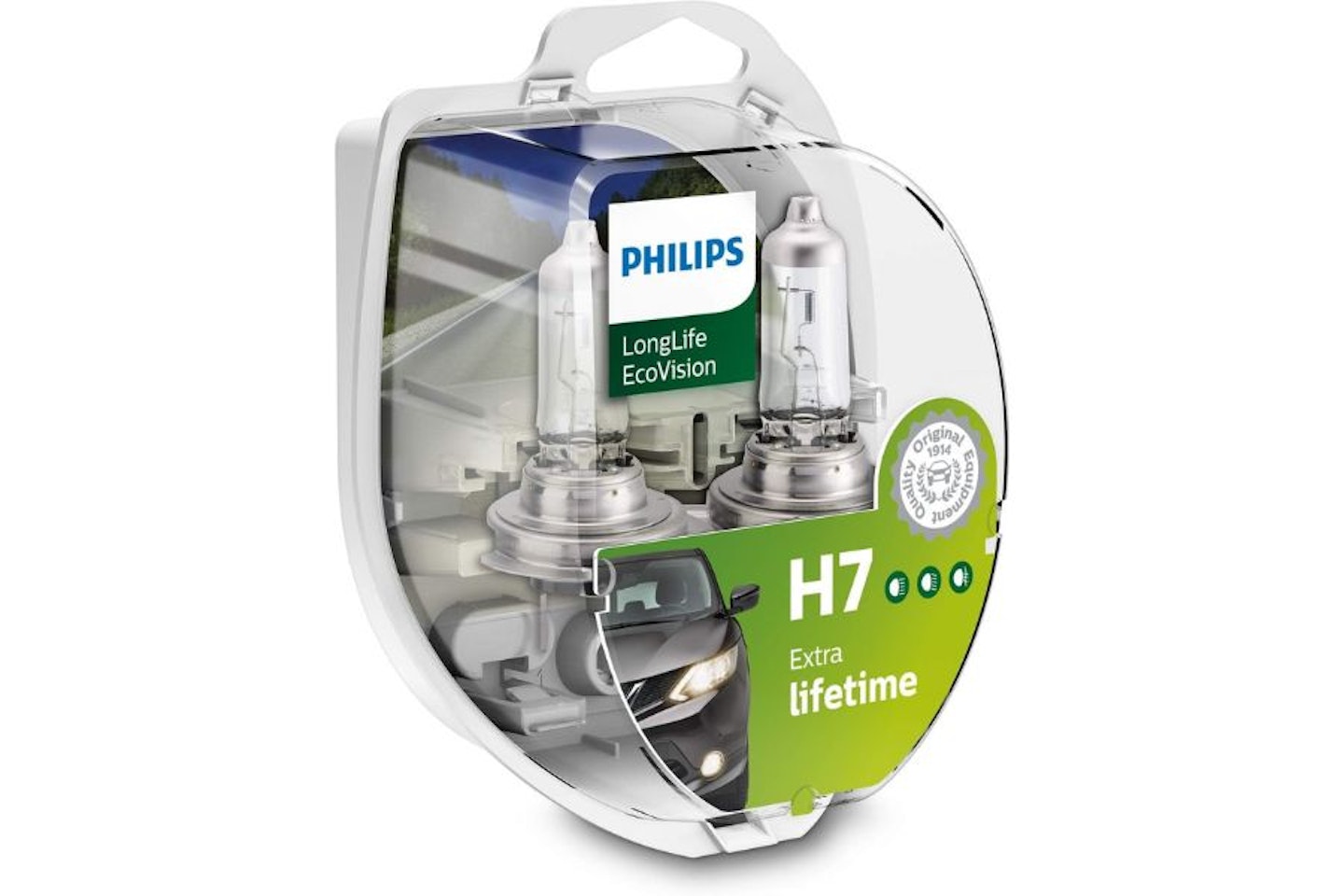
If it’s not brightness but durability you’re after, try these. Philips say the LongLife EcoVision give you up to 100,000km of life in the bulb. It is made with UV-Quartz glass which is more robust than hard glass and highly resistant to temperature extremes and vibrations, eliminating the risk of explosion.
Pros
- 100,000km of life
- UV-Quartz glass
- Reduced maintenance
Cons
- Sacrifice brightness for durability
We will have a look at Xenon/HID bulbs below.
Replacing bulbs
The first, natural step is finding out which bulbs your car already has fitted. Please don't be one of the wombles who asks a shop assistant for a replacement bulb without knowing which one; I used to sell hiking footwear and the number of people coming in who didn’t know their own shoe size (predominantly men), was ridiculous.
To check, your car’s user manual should tell you. Alternatively, you can check the actual bulb itself (some cars also have the bulb type on the headlight casing inside the engine bay), or you can go online. There are numerous car parts websites that allow you to plug in your car’s registration or details and the correct bulbs will be presented to you – Amazon Garage does this too.
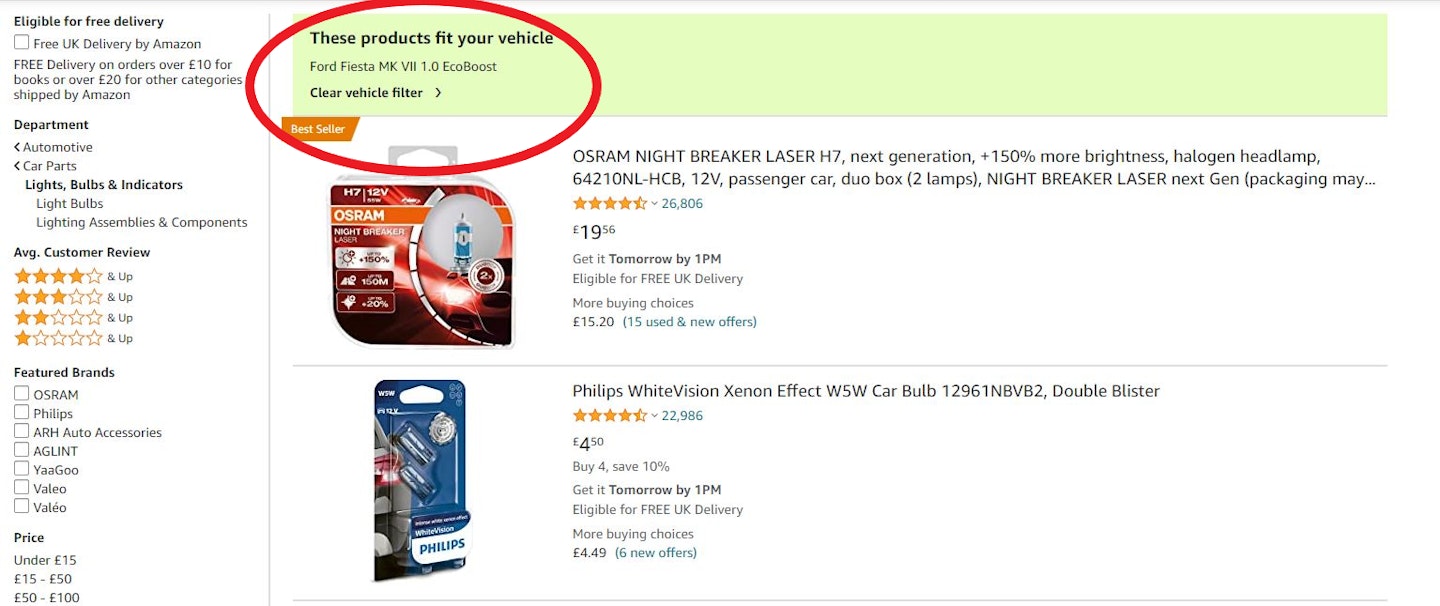
Halogen bulbs are easy but sometimes fiddly to replace:
1. Access to headlights is from behind, inside the engine bay, don’t have to remove the headlight
2. Designs vary but generally, there will be a plastic cover that you remove to access the bulbs inside the light.
3. Carefully unclip or pull out the bulb from the mounting. And look at the position the bulb was clipped in, so you know how to fit the new one.
Tip: It doesn’t matter with the old bulb but do not touch the glass on the new bulb because your oil on your skin will blow the bulb immediately.
4. Remove the old bulb from the connector.
5. In order to fit the new one, do the exact reverse of steps 1 to 4.
6. Once you’ve fitted the new bulb, give them a test.
Xenon/High-Intensity Discharge (HID)
These bulbs have an arc that uses xenon gas and metal salts to generate their light. Xenon bulbs require a momentary high voltage to ignite. They burn colder than halogen, which is why they emit a bluer light; Xenon bulbs also tend to be brighter and last longer too. Consequently, they are more expensive to buy than halogens. In terms of fitting, xenon bulbs can only be fitted to cars that came with them from the factory; it’s illegal to install them. They use a range of D fittings.
Some xenon bulbs can be replaced in a similar fashion to halogens – it depends on the car model. However, some xenon bulb replacements require removing the entire headlamp, in which case, you can still buy the bulbs to save a few pounds if you wish, but get them fitted by a professional.
Top xenon bulbs
Best for long life
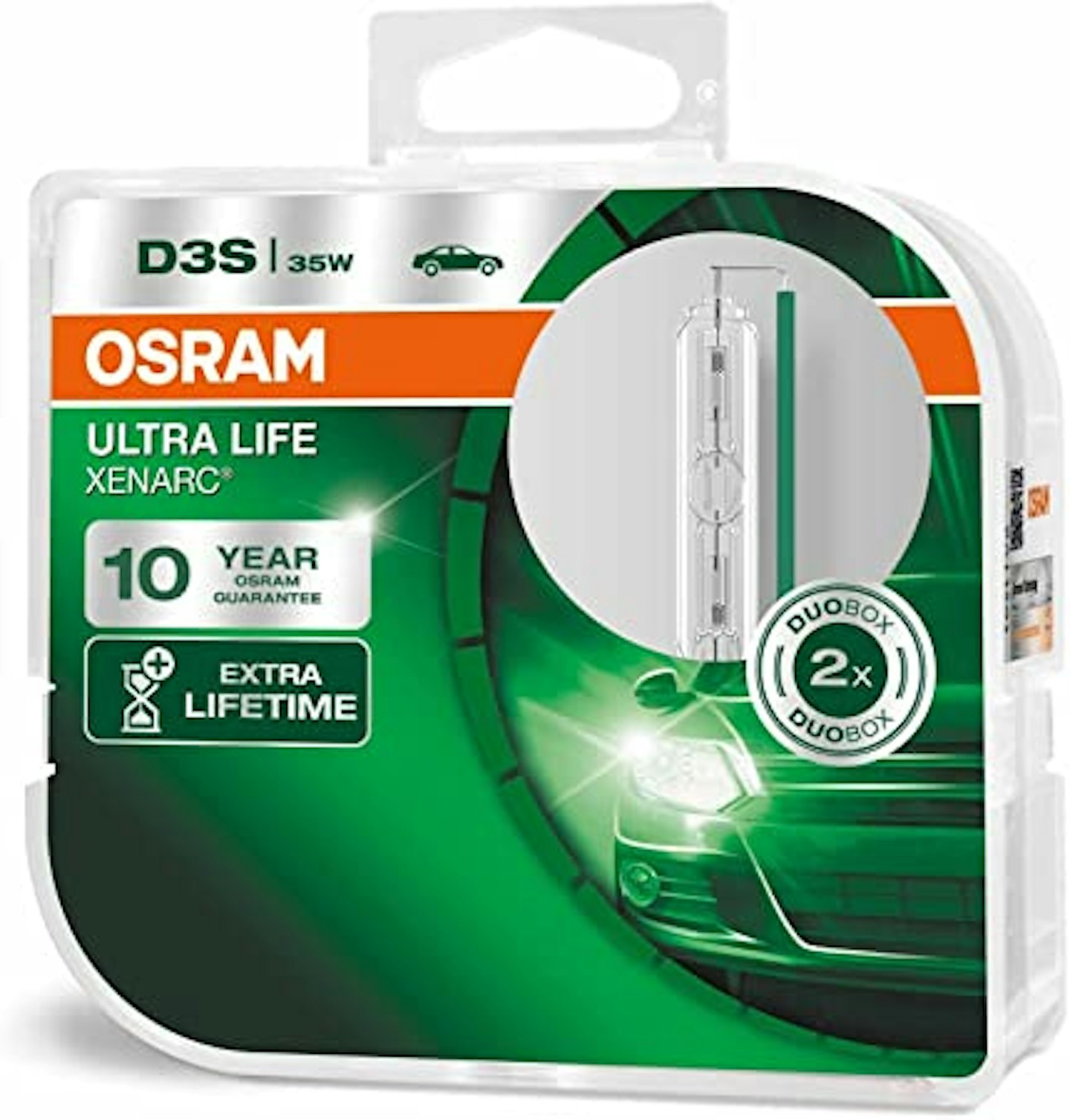
Osram claims four times the lifespan of ordinary xenon bulbs with these. While they come in at a high cost, there are two in this pack. They also shouldn’t need changing for up to 300,000km, making them incredibly durable, and they have a 10-year guarantee when registering them.
Pros
- Durable
- Long guarantee
- Reduced maintenance
Cons
- High price
Cool look
Osram claims these bulbs will give you up to 20% more light than conventional, coated xenon lamps. With a colour temperature of up to 5500k, you’ll get that blueish Xenon look, giving you more brightness on the road to help you in the dark.
Pros
- Up to 20% more light compared to conventional, coated xenon lamps
- Extra blue light from a special filling system
- Operating life of 3000 Hours
Cons
- High price
Best standard replacement
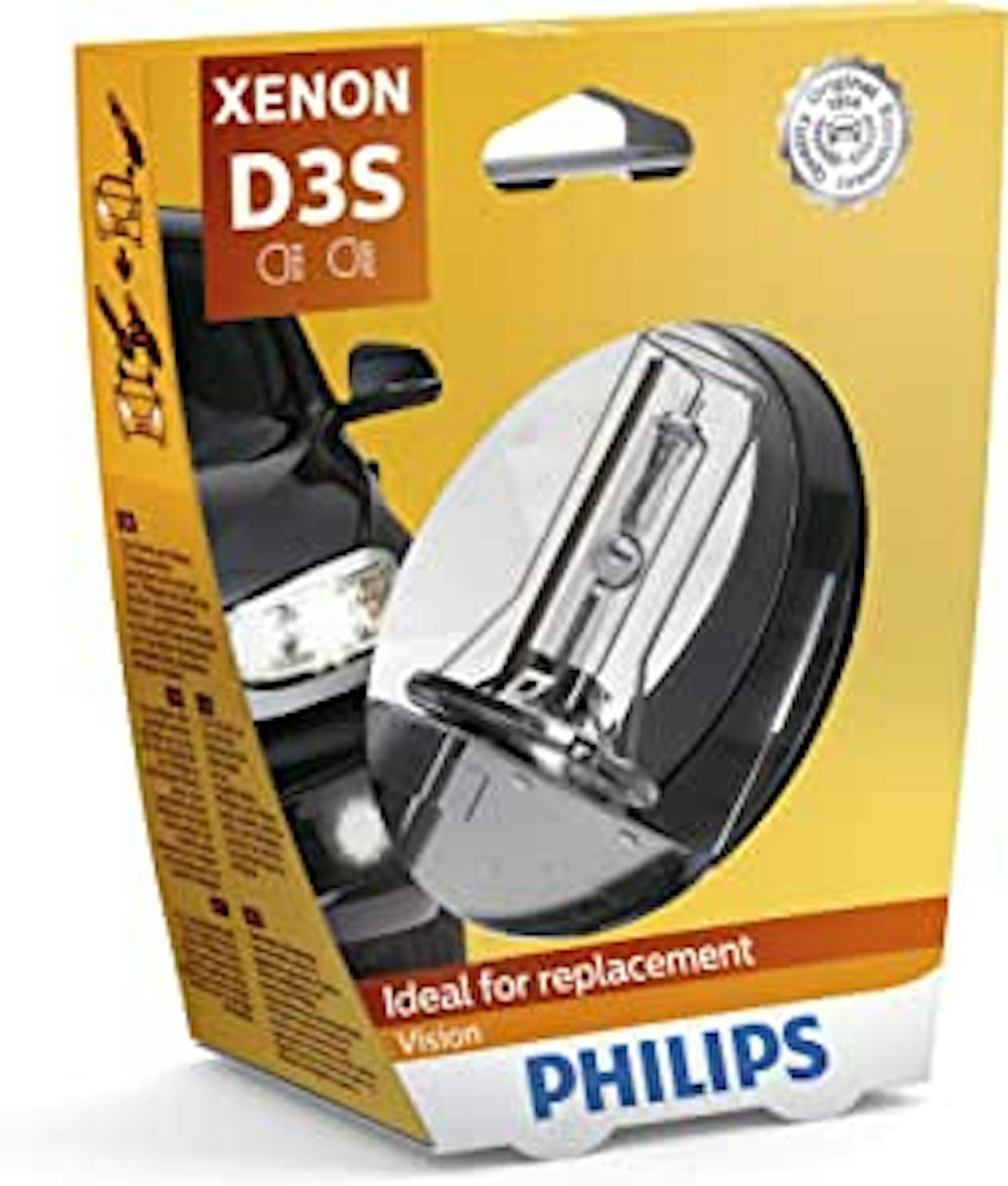
Only available here in a single bulb pack making the cost to replace your ordinary lights relatively high. Philips claim it will match the colour of an unchanged Xenon bulb, all thanks to its new single-lamp replacement technology.
Pros
- Made of high-quality quartz glass
- Should match the unchanged Xenon lamp
- 4,600 Kelvin
Cons
- High price
Best for brightness
A set of two bulbs at a high price, but Philip claim they will give you improved visibility making these bulbs seriously punchy. These bulbs are claimed to give you up to 120% improved visibility compared to the legal minimum standard bulb.
Pros
- Made of high-quality quartz glass
- Better visibility for a safer, more comfortable driving
- Up to 120% improved visibility
Cons
- High price
LED bulbs
Like HID, LED bulbs are not allowed to be retrofitted on car headlights – you can fit them in interior lights, for example. You may find LED lights with H7 fittings for example, but they are not road legal or ECE compliant. LEDs are more energy efficient and long lasting than the competition - up to 10 or so years. These days, LED lights are generally replacing xenon in new cars – for example, current higher-end Mercedes-Benz A Class models feature LED headlights. They’re practical and allow car makers to create cool headlight shapes. LEDs can be fitted with sensors and therefore become adaptive. The downside is they can be incredibly expensive to replace and only done by professionals.
Future of headlights
These days laser lights are coming into the battle. These work by firing a laser at phosphorus, emitting light which is filtered through a lens and then hits a reflector. The advantage is a cool gimmick. Also, this laser light technology uses hundreds of mirrors that can be individually adjusted by the car’s brain to tune where and how the road ahead is illuminated. In simple English: smart adaptive headlights. Cool stuff.
Chris Williams is an Automotive Content Writer for Parkers and CAR Magazine, but he also contributes to Live For The Outdoors and What's The Best. He trained as an automotive journalist in New Zealand, prior to which he studied International Relations and History.
